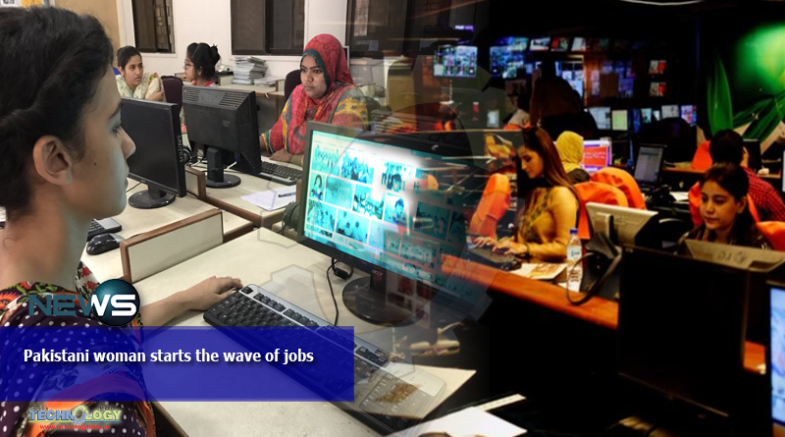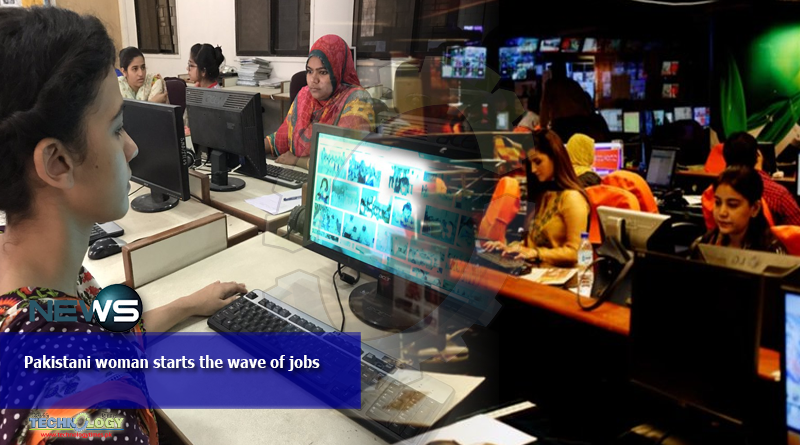Women technology Bootcamp teaches many skills for women to start a wave of jobs like coding, graphics, digital media marketing, and women learn these skills quickly and are opening new doors towards jobs

Kainat Naz has started a wave of jobs for women, earlier she joined a women-friendly technology boot camp. She signed up for a tech program called TechKaro, an initiative by Circle, a social enterprise that aims to improve women’s economic rights in Pakistan, and is now working fulltime for a software company.
Naz said the course was challenging in many ways but she soon found that the women on the training were just as good as the men at tech skills like coding, web development and digital marketing, and also at presenting themselves at interviews.
Women make up about 25% of Pakistan’s labor force, one of the lowest in the region, according to the World Bank.
It has set a target to increase this to 45%, calling for more childcare and a crackdown on sexual harassment to encourage more women out to work and boost economic growth.
In Pakistan, women represent only 14% of the IT workforce, according to a 2012 study by P@SHA, the Pakistan Software Houses Association for IT and IT-enabled services (ITeS).
Sadaffe Abid, chief executive of Circle, set up TechKaro with the help of a few private foundations in 2018 seeing this gender gap and took on 50 trainees in the first year of which 62% were women and 75 in 2019 including 66% women.
“I am a firm believer that one of the most powerful uses of technology is to bring it to young women, especially from under-served communities, to unlock their talents, resourcefulness, and creativity,” said Abid.
TechKaro is one of the latest programs in the country aimed at helping women crack the traditionally male domain.
CodeGirls Pakistan, a Karachi-based boot camp, trains girls from middle and low-income families in coding and business skills.
In 2017, a six-week camp SheSkills taught women everything from web development and digital design to social media marketing.
After attending the TechKaro course, Naz found work earlier this year at an IT company earning double the salary she was getting as a teacher but which meant leaving her neighborhood, using public transport, and working side-by-side with men.
“The rest of Karachi is not quite the big bad wolf I’d imagined it to be,” said Naz who navigated an app-based transit startup to reduce her travel time by two hours a day.
“It gave me a lot of confidence when I asked my employers if they would have a problem with my wearing the niqab (a veil that fully covers the face) and they said they were only interested in my work performance.”
“But we had to hide this from my older brother, who is married and lives separately, as he was unhappy even with my working as a teacher,” she said.
She described the course of three-hour sessions held three times a week for eight months as grueling but worthwhile.
She paid 500 rupees ($3.13) a month for the course that involved 75 men and women and another 2,400 rupees on bus fares to attend workshops after mornings of teaching and often spent three to four hours on homework at night.
“I had thought men would be better at this, but when I was in the thick of things, I realized that was not the case. Anyone can learn if they put their mind to it,” she said.
A month since the lockdown was announced due to the COVID-19 pandemic, Naz is working remotely.
“We use Zoom and Google Hangout for meetings and our tasks are put on Trello,” she said, at ease with the technology.
With no travel time or transport costs, she is enjoying working from home.
Abid said TechKaro has continued its work during the coronavirus lockdown by going “fully digital” so women can continue to learn tech skills from home.
